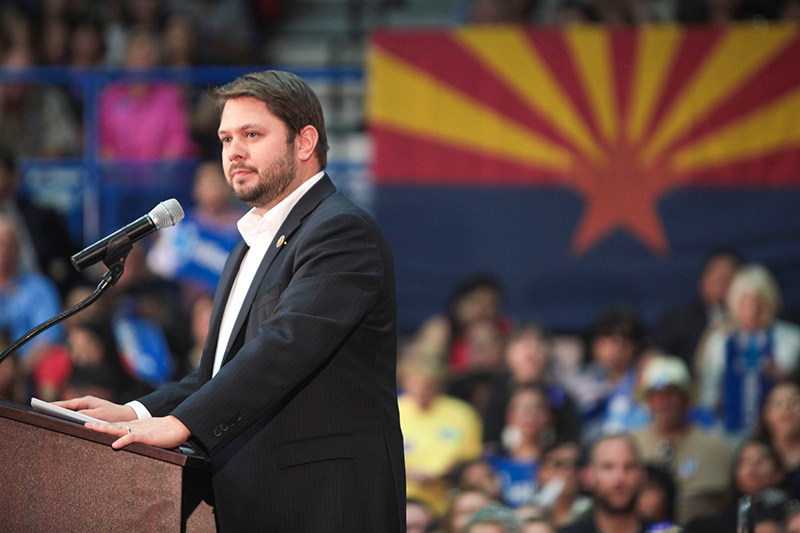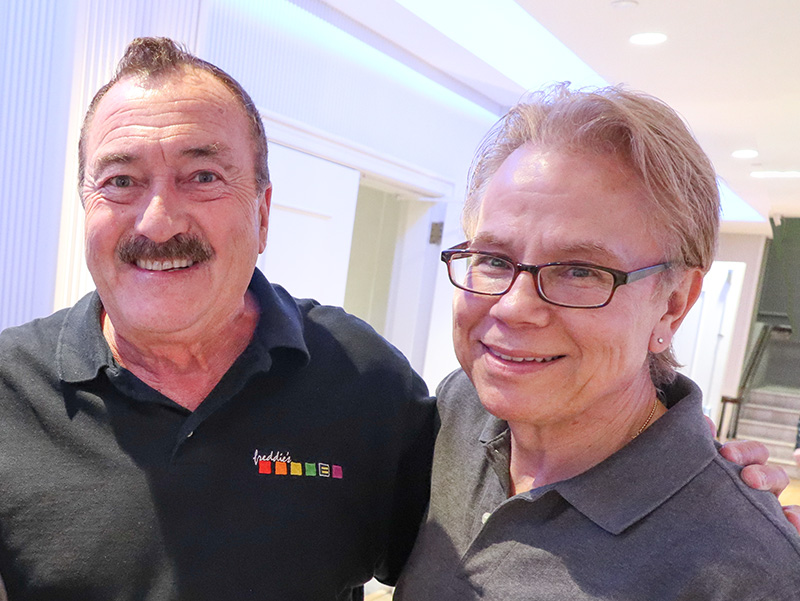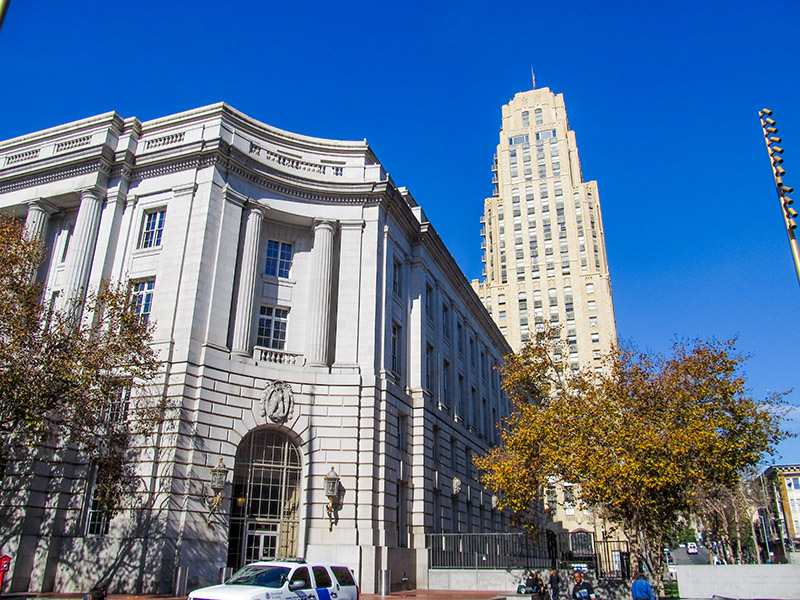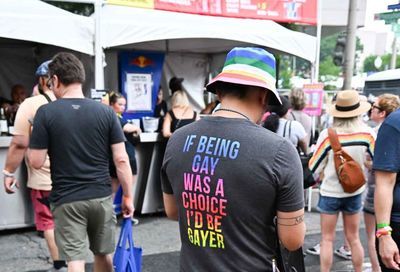Federal court rules same-sex spouses eligible for Social Security survivor’s benefits
Judge grants class action status, allowing other survivors of same-sex spouses to seek benefits they've earned

A federal court has ruled that the U.S. Social Security Administration violated the constitutional rights of same-sex widowers whose claims for survivor’s benefits were denied because they were prevented from being married by state bans on same-sex marriage.
The lead plaintiff in the case, Michael Ely, had his application for Social Security survivor’s benefits rejected because he had only been married to his late husband, James “Spider” Taylor, for six months at the time of Taylor’s death in May 2014.
Even though the couple had been together for 43 years and Ely had served as the primary caretaker for Taylor, the chief breadwinner, during their time together, survivor’s benefits require nine months of marriage prior to a spouse’s death.
Ely, enlisting the help of Lambda Legal, sued the Social Security Administration in November 2018, alleging that the denial of his application was a form of discrimination because he and Taylor would have married earlier if possible, but were prevented from doing so until Arizona’s ban on same-sex marriage was struck down by a court in October 2014.
On Wednesday, U.S. Magistrate Judge Bruce Macdonald, of the U.S. District Court for the District of Arizona, ruled that the denial of claims from same-sex couples blocked from marrying was unconstitutional and counter to the Supreme Court’s 2015 decision finding that same-sex couples were entitled to all the benefits, privileges, and responsibilities that come with marriage.
“The unconstitutional infringement on Mr. Ely and Mr. Taylor’s fundamental right to marriage is now being perpetuated further by the denial of Mr. Ely to obtain survivor’s benefits,” Macdonald wrote in his ruling. “For married couples, such as Mr. Ely and Mr. Taylor, who could not meet the durational requirement due to the same-sex marriage ban in their home state, Defendant’s decision has ‘denied [these] married same-sex couples access to the “constellation of benefits that the Stat[e] ha[s] linked to marriage.”‘”
Macdonald also granted a request from Lambda Legal to certify the case as a nationwide class action suit, allowing similarly situated same-sex couples throughout the country to bring claims against the Social Security Administration to ensure they receive benefits to which they’d be entitled.
“[The Social Security Administration] is enjoined from denying class members benefits without consideration of whether survivors of same-sex couples who were prohibited by unconstitutional laws barring same-sex marriage from being married for at least nine months would otherwise qualify for survivor’s benefits,” Macdonald wrote.
Now that class action status has been granted, other survivors of same-sex couples whose applications were denied may seek their own relief. Lambda Legal previously filed three separate lawsuits on behalf of other same-sex spouses or partners who encountered similar obstacles to marrying or obtaining survivor’s benefits.
One of those widowers, Anthony Gonzalez, who was only married to his partner of 16 years, Mark Johnson, for six months prior to Johnson’s death — as well as Jim Obergefell, the plaintiff at the center of the 2015 Supreme Court decision, who would not qualify for survivor’s benefits due to his three-month marriage to his late partner of 20 years, John Arthur — were named as class members in Ely’s lawsuit.
“[Macdonald’s ruling] is a tremendous victory for many surviving same-sex spouses nationwide who have been locked out of critical benefits because they were unlawfully barred from marriage for most of their relationships,” Lambda Legal Counsel Peter Renn said in a statement. “Many same-sex couples were in loving, long-term, and committed relationships for decades — and they shouldn’t be treated as strangers in death simply because they were unable to marry for most of that time. No one should be penalized for being the victim of discrimination.”
“It is gratifying to have the court today recognize the 43 years of love and commitment that my late husband and I shared, rather than looking only at the date on a marriage certificate that we were denied for most of our lives,” Ely said in a statement. “My late husband, who went by the nickname ‘Spider,’ was the love of my life, and we got married as soon as the law permitted. My husband paid into social security with every paycheck, and I know he can rest easier now knowing that I, at last, will start receiving the same benefits as other widowers.”
Lambda Legal has previously argued that the denial of Social Security benefits can have dire consequences, particularly for those LGBTQ survivors who were already struggling financially or living paycheck to paycheck.
For instance, one such widower, Josh Driggs, of Phoenix, Ariz., who was in a 40-year relationship with his late husband but also failed to meet the nine-month waiting requirement, experienced homelessness on two separate occasions after being denied benefits.
“While these monthly benefits may seem modest, they can make the life-changing difference between having enough food, medication, or a roof over one’s head,” Driggs said in a statement. “For me, the denial left me out in the cold, literally. I had to leave the home that my husband and I had shared, and I became homeless twice — once on the eve of Thanksgiving, which I spent in my van in a Wal-Mart parking lot. I’m relieved to know that no one else in our community will have to experience that indignity simply because of who they loved.”
Read more:
Study: Same-sex weddings boosted state economies by $3.8 billion
Jared Kushner wants Republicans to stop supporting conversion therapy
Return to Service: DC’s LGBTQ bars and taverns are starting to reopen
Support Metro Weekly’s Journalism
These are challenging times for news organizations. And yet it’s crucial we stay active and provide vital resources and information to both our local readers and the world. So won’t you please take a moment and consider supporting Metro Weekly with a membership? For as little as $5 a month, you can help ensure Metro Weekly magazine and MetroWeekly.com remain free, viable resources as we provide the best, most diverse, culturally-resonant LGBTQ coverage in both the D.C. region and around the world. Memberships come with exclusive perks and discounts, your own personal digital delivery of each week’s magazine (and an archive), access to our Member's Lounge when it launches this fall, and exclusive members-only items like Metro Weekly Membership Mugs and Tote Bags! Check out all our membership levels here and please join us today!

























You must be logged in to post a comment.